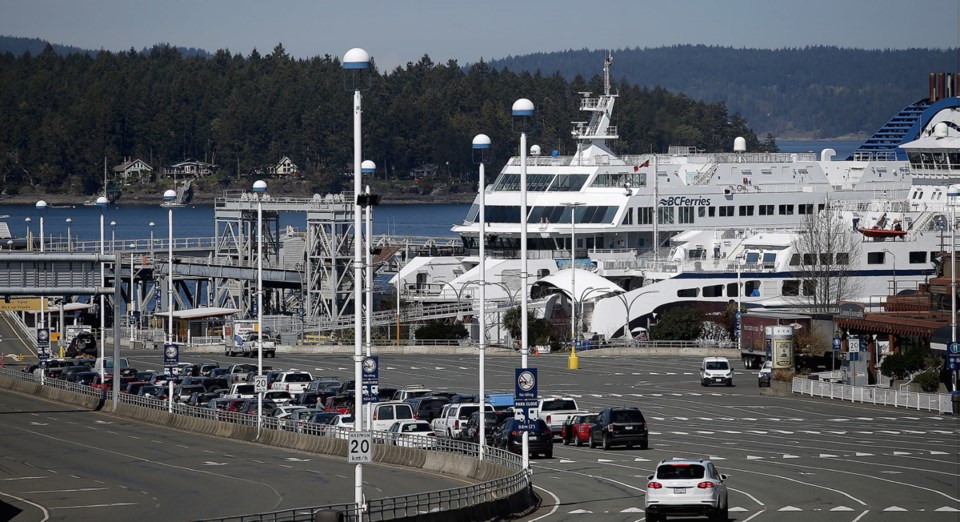B.C. Ferries’ balance sheet took a beating in the last few weeks of its financial year as a result of the COVID-19 pandemic, which ensured a disastrous finish to what had been a strong fiscal year for the corporation.
According to its year-end financial report released this week, B.C. Ferries recorded a $28.8-million profit in the fiscal year ending March 31, a drop of more than $23 million from last year’s $52.2-million profit.
“This past year will go down in memory as the fiscal year in which the first 50 weeks delivered one of B.C. Ferries’ strongest performances to date, while the last two weeks of the fiscal year brought traffic to a near halt,” said chief executive Mark Collins.
“The challenges of COVID-19 have been nothing short of profound, with impacts shared by all B.C. businesses, our province, our country and the world.”
At times during the pandemic, B.C. Ferries lost as much as $1.5 million a day, the corporation has said, as demand dropped by as much as 80 per cent. It has cut operations and laid off staff while continuing to deliver goods to island communities and transport essential workers.
Collins said B.C. Ferries plans to continue providing essential service to coastal communities, while preserving its ability to “operate sustainably,” which requires further reducing of costs and seeking “additional efficiencies.”
“We have reduced operating and capital spending significantly and will only proceed with expenditures directly linked to safety and critical operations,” he said.
Though the ferry corporation’s revenue increased $15.7 million or 1.7 per cent compared with last fiscal year as a result of increased traffic volume and retail sales, that revenue dropped significantly in the final weeks of the fiscal year because of the pandemic.
During the year, B.C. Ferries also took on a large capital program, spending more than $238 million to improve infrastructure. That included $141 million in new vessels, $46 million in vessel upgrades and $25 million on terminal structures and building upgrades.
The Northern Sea Wolf was added to the fleet to serve the mid-coast region, along with two new Island Class hybrid-electric ships designed for future full-electric operation.
In the fiscal year ending March 31, B.C. Ferries provided more than 82,000 round trips, 2,330 more than the previous fiscal year, carrying 8.8 million vehicles and 21.7 million passengers. During the first 50 weeks of the last fiscal year, passenger traffic was up 0.1 per cent and vehicle traffic was up 1.3 per cent.
During the last two weeks of March, however, vehicle traffic dropped 55 per cent and passenger traffic dropped by 69 per cent, which meant for the entire year, vehicle traffic was down one per cent and passenger numbers were off 2.7 per cent compared with 2019.



